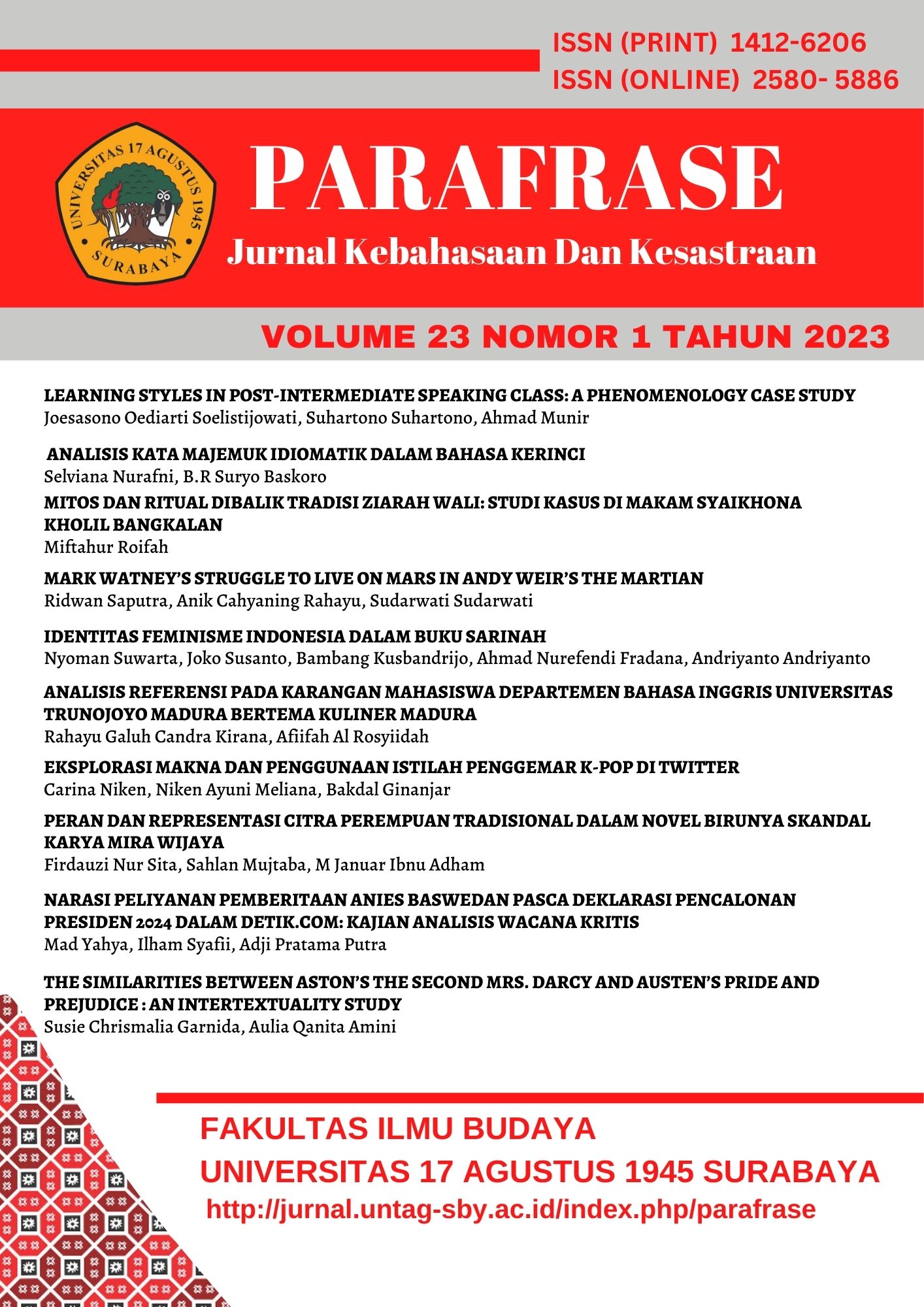LEARNING STYLES IN POST-INTERMEDIATE SPEAKING CLASS:
A PHENOMENOLOGY CASE STUDY
DOI:
https://doi.org/10.30996/parafrase.v23i1.7425Keywords:
analytical, communicative, concrete, learning styles, post-intermediate speaking classAbstract
The objectives of this research are to describe how the students use their preferred learning styles and investigate the students’ reasons for using their preferred learning styles in Post-Intermediate Speaking class. The first finding showed that the communicative and concrete learning style was used by 17 students, the concrete learning style was used by 9 students, the analytical learning style was used by 3 students, communicative and analytical learning style was used by 1 student. The second finding showed that the students who applied communicative and concrete learning style felt convenient being active-independent persons, matched with the way they learn, liked to learn speaking by using social learning approach, enjoyed of using concrete learning style because they belonged to active-dependent persons, liked reading and answering comprehension questions; the students who applied concrete learning style felt enjoy being active-dependent persons, liked to watch English program on TV, liked to learn English by playing games, liked learning new words by putting them into sentences, liked reading and answering comprehension questions, liked trying to say things in different ways when they do not understand the first time, liked reading books with pictures; the students who applied analytical learning style liked correcting their own mistakes, liked thinking of better ways to learn English, liked copying words and sentences from a book, liked working on problems given by the lecturer, liked learning the function of different expressions, liked reading the English newspaper; the students who applied communicative and analytical learning style liked to learn speaking in real life situation and condition, liked working in groups in the classroom, liked correcting their own mistakes and liked working on problems given by the lecturer.
Downloads
Downloads
Published
How to Cite
Issue
Section
License
Authors publishing in the Journal will be asked to sign a Copyright Assignment Form. In signing the form, it is assumed that authors have obtained permission to use any copyrighted or previously published material. All authors must read and agree to the conditions outlined in the form, and must sign the form or agree that the corresponding author can sign on their behalf. Articles cannot be published until a signed form has been received.It is a condition of publication that authors assign copyright or license the publication rights in their articles, including abstracts, to email jurnalparafrase@untag-sby.ac.id. . This enables us to ensure full copyright protection and to disseminate the article, and of course the Journal to the widest possible readership in print and electronic formats as appropriate.



















